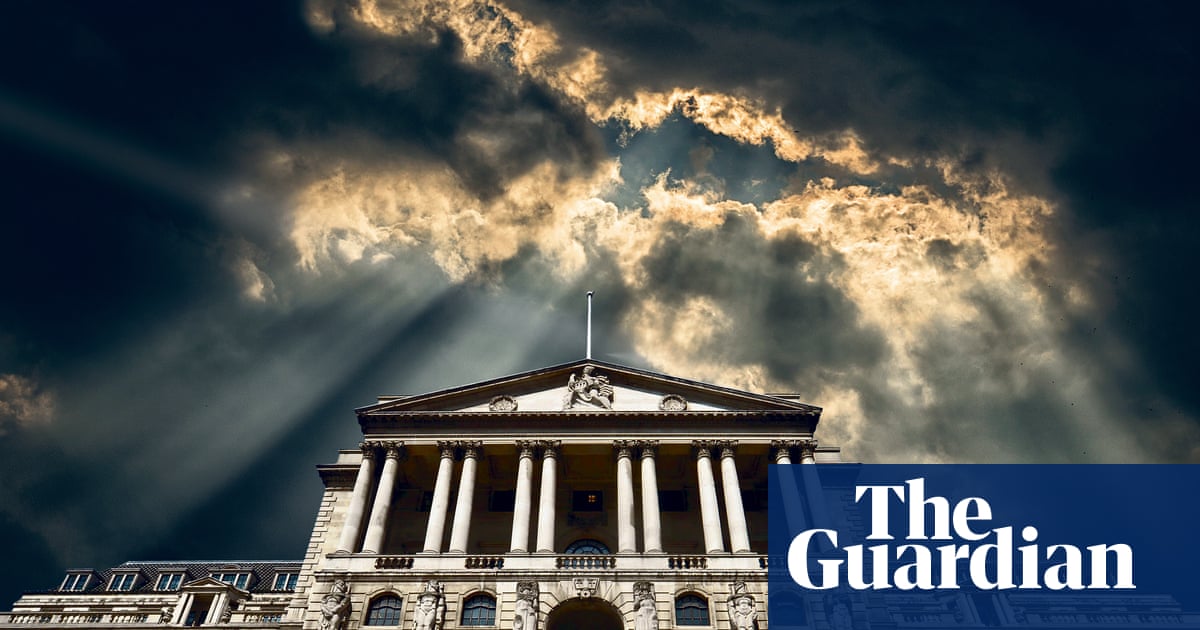The governor of the Bank of England, Andrew Bailey, has warned recent events in US private credit markets have worrying echoes of the sub-prime mortgage crisis that kicked off the global financial crash of 2008.
Appearing before a House of Lords committee, the governor said it was important to have the “drains up” and analyse the collapse of two leveraged US firms, First Brands and Tricolor, in case they were not isolated events but “the canary in the coalmine”.
The Bank of England governor, Andrew Bailey. Photograph: Alastair Grant/Reuters
“Are they telling us something more fundamental about the private finance, private asset, private credit, private equity sector, or are they telling us that in any of these worlds there will be idiosyncratic cases that go wrong?” he asked.
“I think that is still a very open question; it’s an open question in the US.”
He added: “I don’t want to sound too foreboding, but the added reason this question is important is if you go back to before the financial crisis when we were having this debate about sub-prime mortgages in the US, people were telling us: ‘No it’s too small to be systemic; it’s idiosyncratic.’ That was the wrong call.”
When a mortgage-lending frenzy ended in a housing market bust in the US from summer 2007, it kicked off a wave of financial turmoil.
Banks on both sides of the Atlantic had made high-risk bets on billions of pounds’ worth of US home loans, often funding the spree with short-term borrowing.
The resulting crisis, which rolled on for many months, eventually led to a deep recession and a string of costly bank bailouts in the US and Europe, including of RBS and Lloyds in the UK.
Bailey said the complex nature of some of the financial engineering now in use in the private credit markets had echoes of that period.
“We certainly are beginning to see, for instance what used to be called slicing and dicing and tranching of loan structures going on, and if you were involved before the financial crisis and during it, alarm bells start going off at that point,” he told peers.
“That stuff was a feature of the financial crisis, so that’s another reason why we’ve got to use these cases as another reason to have more drains up, frankly.”
He also made clear he was not reassured by the relaxed attitude of some in the sector.
“I sat in a session with people from the private equity and private credit world some months ago who of course told me everything was fine in their world, apart from the role of the ratings agencies, and I said: ‘We’re not playing that movie again are we?’”
skip past newsletter promotion
Sign up to Business Today
Get set for the working day – we’ll point you to all the business news and analysis you need every morning
Privacy Notice: Newsletters may contain information about charities, online ads, and content funded by outside parties. If you do not have an account, we will create a guest account for you on theguardian.com to send you this newsletter. You can complete full registration at any time. For more information about how we use your data see our Privacy Policy. We use Google reCaptcha to protect our website and the Google Privacy Policy and Terms of Service apply.
after newsletter promotion
The lax approach of ratings agencies – sometimes relying on banks’ internal models to determine how risky their own products were – was an important aspect of the 2007-08 crash.
The deputy Bank governor Sarah Breeden, appearing alongside Bailey, said the Bank would be carrying out a war game exercise in private credit markets, to test the linkages between private credit and other sectors.
She underlined some of the concerns about the private credit sector. “It’s about high leverage, it’s about opacity, it’s about complexity and it’s about weak underwriting standards.
“Those are things that we were talking about in the abstract as a source of vulnerability in this bit of the financial system, and those appear to have been at play in the context of these two defaults.”
The collapse of the car parts firm First Brands and the auto lender Tricolor prompted concern on Wall Street, with the JP Morgan chief executive, Jamie Dimon, comparing them to “cockroaches”, and saying that more could emerge.
“My antenna goes up when things like that happen. I probably shouldn’t say this but when you see one cockroach, there’s probably more. And so everyone should be forewarned at this point,” Dimon said.
The International Monetary Fund’s global financial stability review last week highlighted concerns about the close connections between private credit markets and mainstream banks – and the IMF’s managing director, Kristalina Georgieva, said it was the issue that kept her awake at night.
